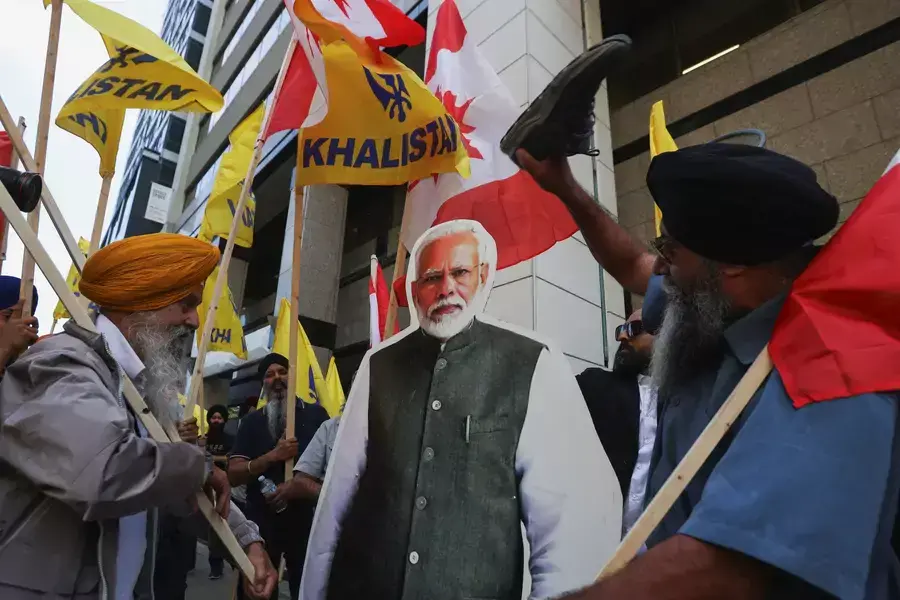Renditions and Extrajudicial Assassinations Increasingly Becoming the Norm in International Relations

The Department of Justice’s recent arrest and charging of an Indian man it claims was employed by an Indian government employee to kill a Sikh activist on U.S. soil again shows that extrajudicial assassination is becoming a more common weapon of major and minor powers alike against activists and others opposed to their governments.
According to NBC, “Federal prosecutors … announced charges against a man they said was ‘recruited’ by an Indian government employee to assassinate a Sikh activist in New York City. Nikhil Gupta, an Indian national, was arrested in the Czech Republic on June 30 on murder-for-hire charges, the U.S. Attorney’s Office for the Southern District of New York said in a news release. Gupta is accused of trying to hire a hit man to kill an attorney and political activist who is a U.S. citizen of Indian origin.”
More on:
This charge comes on the heels of another purported extrajudicial assassination by agents linked to the Indian government—this time a successful killing of a Sikh separatist leader linked to a prominent Sikh temple in Vancouver, Canada. The man, Hardeep Singh Nijjar, was killed outside the temple in what appeared to be a professional assassination plot, with Nijjar killed in the temple parking lot by two men wearing facemasks who then fled in another vehicle that had been set up as an escape plan. The New York Times reports that Canadian intelligence “intercepted communications of Indian diplomats in Canada indicating involvement in the [Nijjar killing] plot.”
The killing of Nijjar and attempted killing pursued by the U.S. Department of Justice may be linked—the BBC reports that Gupta “forwarded the video [of the killing of the Sikh separatist in Vancouver” to a man he is accused of hiring as a hitman for another murder, in a different country [i.e., the United States.] On the phone the next day, Mr Gupta told the man that the Canadian activist had been a ‘target,’ ‘#4, #3’ on a list,” although who compiled such a list and whether they were directly related to the Indian government remains unknown.
Extrajudicial killings and kidnappings have become more common in recent years as countries, both large and small, have mostly gotten away with them with minor diplomatic sanctions, even if the actual killers are found and arrested. Jamal Khashoggi was murdered and dismembered in Saudi Arabia’s embassy in Turkey, yet just a few years later, President Joe Biden was warmly meeting Saudi leaders. Saudi Arabia was awarded the 2034 World Cup, the biggest sporting event in the world, and the kingdom was re-embraced by a wide range of investors. Chinese intelligence agents allegedly kidnapped a prominent Swedish national publisher of independent books on China, Gui Minhai, from Thailand. They spirited him to mainland China, where he was then sentenced to ten years in jail and saw his health deteriorate. Yet even after his kidnapping in 2015, for years, foreign investors continued to court China aggressively—until, in the years since then, it has become more apparent that Beijing is willing to grab other activists from beyond its borders or hold foreigners in China on dubious charges.
Similarly, while the killing in Canada chilled relations between Delhi and Ottawa—and part of the intelligence on Delhi being behind the killing was provided by U.S. intelligence—Canada and India will continue their close trade and investment ties. Eventually, I am sure, diplomatic relations will return to normal.
As I noted in a recent World Politics Review article, even smaller and authoritarian countries in Southeast Asia have picked up these habits of extrajudicial assassination of political opponents or kidnapping of such people, as they see they can get away with such activities with no diplomatic punishment whatsoever. So, while Thai activists turn up murdered in neighboring states, the United States, China, and other major powers court Bangkok, a critical strategic hub in an ever-more-dangerous region. While Vietnam’s government kidnapped a Vietnamese man from Germany, Berlin protested, and some of the people involved in the plot were arrested—but no major power did anything more to Hanoi. On the contrary, in recent months, the Biden administration has moved to significantly upgrade ties with Hanoi, an important partner in the competition between the United States and China for influence in Southeast Asia and a possible military partner for Washington should conflict break out in the region.
More on:
So, like India, Saudi Arabia, and even (for a time) Russia, countries like Thailand and Vietnam get away with it—and embattled activists fighting these authoritarian states have reason to worry even when they flee their homeland.
 Online Store
Online Store